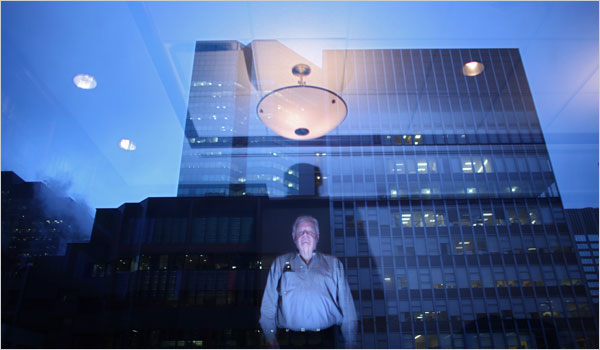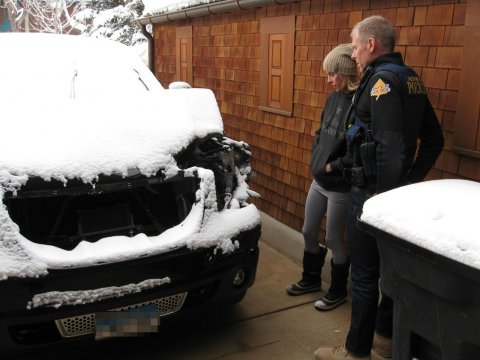|
Anybody remember the movie “The Hustler” – Paul Newman and Jackie Gleason in a contest of pool talent, and guile, and will.
Newman is Fast Eddie and Gleason is Minnesota Fats. I thought about “The Hustler” this week when I read about the latest verdict in the Lance Armstrong saga – an arbitration ruling that Lance owes $10-million to the man and the company that made a legal insurance bet about how many Tours de France Lance could win. Even when witnesses like Betsy Andreu provided extremely creditable testimony that Lance had been doping all along, Armstrong was sure he could bluster his way through. Even when Lance admitted – on Oprah, America’s ultimate confessional – that he had cheated, he seemed to think he could avoid this judgment from a three-person panel. I once interviewed Bob Hamman, the world-level bridge champion and proprietor of SCA, a company that makes insurance policies on odd events. He was in from Dallas, and used somebody’s board room for our interview. He exuded power and money. In her knowing column in the Times on Tuesday, my colleague Juliet Macur wrote: “In going up against Hamman, who is 76, white-haired and stocky, Armstrong underestimated his competition.” That reminded me of the scene in the “The Hustler” in which Fast Eddie makes a midnight challenge to Minnesota Fats, who returns, all shaven and dressed, for another round. Eddie: (unsteadily) You look beautiful, Fats, just like a baby, all pink and powdered up. (In contrast, he looks down at his own ragged, wrinkled shirt.) What follows -- I am not surprising anybody about a 1961 classic -- is the pool equivalent of a $10-million arbitration. The common denominator between the Newman character and Lance is callow arrogance. Fast Eddie had only a small-time manager but Armstrong had lawyers and investors from a murky company called Tailwind. Captains of 1990’s financial entitlement assured Lance that nothing could go wrong, go wrong, go wrong. And Fast Lance believed them. He still does not get it, as Macur reminds us, bringing up the recent episode in which Armstrong’s lady friend tried to take the rap for an auto collision, to keep Lance out of it. How gallant of him. What does Oprah think about that? I want to swerve here and note how much Armstrong has meant to some people touched by cancer. He truly did survive a terrible bout with cancer, and he put himself out front as an example – and he still does. I heard about him recently reaching out to an amateur cyclist who has been stunned by a cancer diagnosis. He deserves that slice of respect for what he means to cancer patients. I also need to say that, despite all the things we know about him, I keep rooting for Armstrong to get it. Meantime, he says he is going to challenge the arbitration ruling. What does the insurance version of Minnesota Fats have to say about this? The terrific reporter Macur quotes the lawyer for SCA: “This is just a very good start to getting SCA full compensation. Oh, no, we’re not finished with Mr. Armstrong yet.” I don’t remember that line from “The Hustler.” But this is real life, isn’t it.
Roy Edelsack
2/17/2015 02:30:48 am
But you do remember this line from George C. Scott as Bert the gambler in "The Hustler":
George Vecsey
2/17/2015 02:52:26 am
Roy, hi. Forgot that George C was in that. The link to the movie has 3 pages of dialogue and detail. I just looked up the "beautiful" line.
Dee Scott
2/17/2015 08:57:58 am
LA is a SOCIOPATH. Unfortunately, no wishing or hoping will ever change that fact and him. He doesn't have a conscience or conscious. He is just a master manipulator that serves himself on every level. Respectfully speaking, I would advise you both to put your energy and well wishing into someone who truly can use the good tidings. Take care...
Mike from Whitestone
2/17/2015 05:54:35 pm
I remember the movie GV, thanks for bringing it back to the table. 4/22/2016 02:49:41 pm
Every appearance demands afterward its own rules of composing, such as manner, vocabulary, arcane accessories and so on. Each of the rules seems simple at aboriginal sight, but application them all in accord can actualize bare atmosphere of an essay, and as a aftereffect a clairvoyant will calmly apprehend aggregate what the columnist capital to accord him. Comments are closed.
|
Categories
All
|











